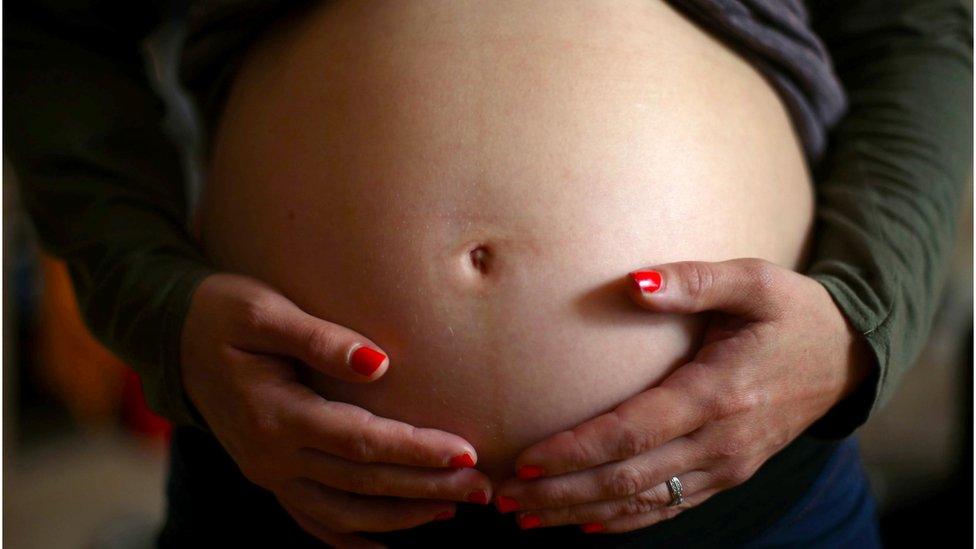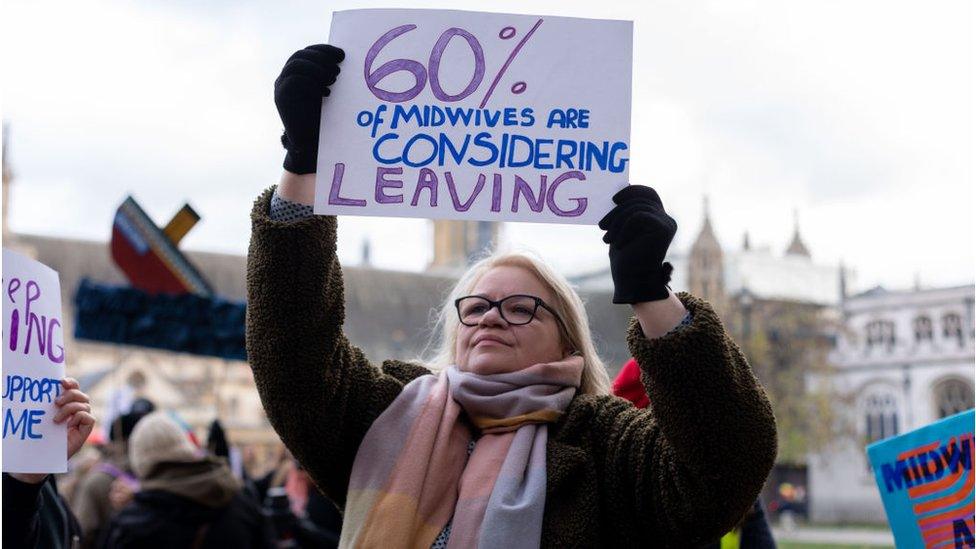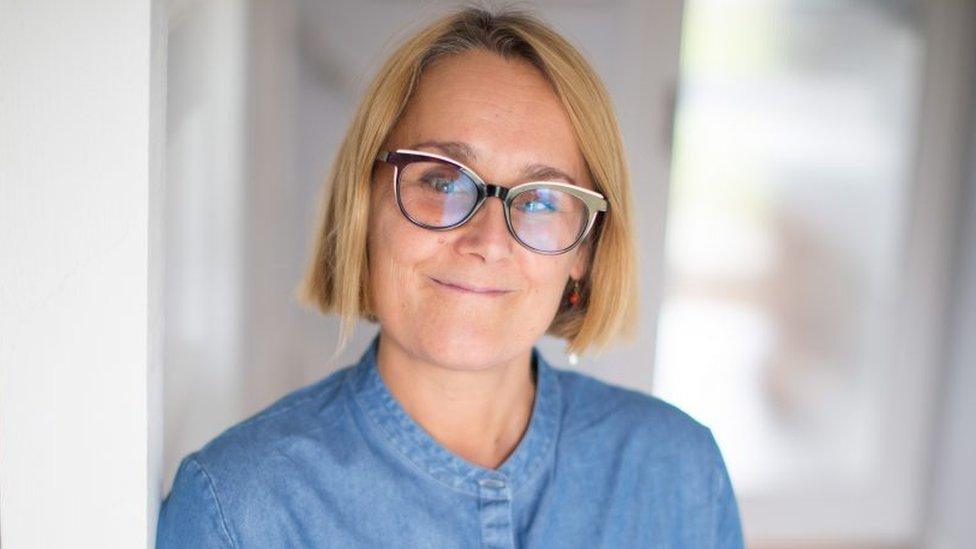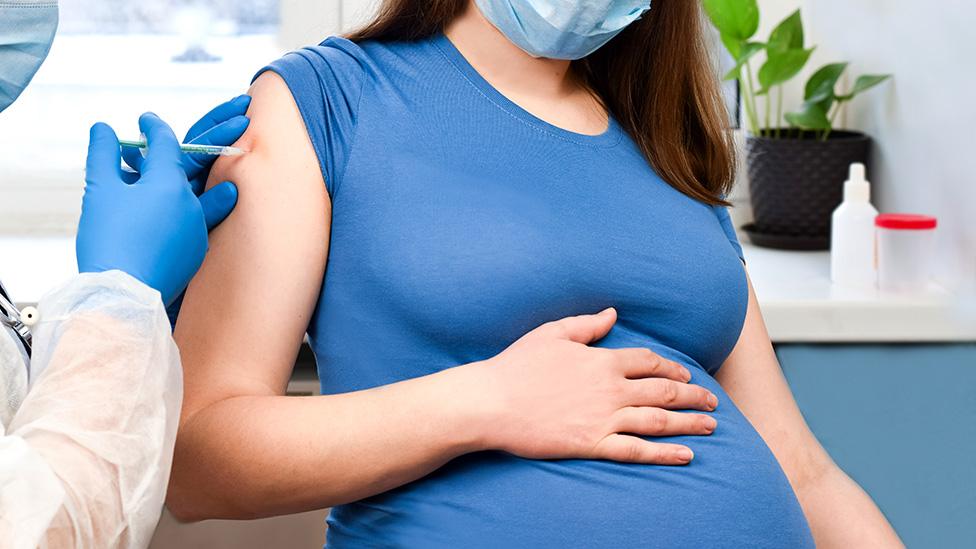Maternity care a 'postcode lottery' in London
- Published

There were disparities in the levels of maternity care provided between NHS Trusts, the report found
Londoners were subjected to a "postcode lottery" in the provision of maternal health services during the pandemic, a report found.
The London Assembly Health Committee found there were disparities in the levels of care provided between different NHS trusts.
London Mayor Sadiq Khan was urged to help drive up maternity care standards.
"Our investigation shows that lessons need to be learnt," said chair of the health committee, Krupesh Hirani AM.
The committee called on Mr Khan to urge the NHS in London to carry out a review to learn lessons from the Covid-19 pandemic and decide how maternal health services in the capital should respond to future pandemics.
The report found that NHS trusts took different approaches to enforcing Covid-19 restrictions, with the pandemic having a negative impact on the mental health of pregnant women and their partners.
It also found that inadequate staffing levels and retention were a significant challenge for maternity services, with maternity staff from minority ethnic groups being more likely to face discrimination, be disciplined, and less likely to be promoted.
Organisations including Pregnant Then Screwed, Birthrights, Five X More and the Royal College of Midwives all submitted evidence to the committee.
'Losing babies alone'
Joeli Brearley, CEO and founder of Pregnant Then Screwed, said: "The restrictions on maternity wards in the pandemic were inhumane.
"Women were birthing alone, losing babies alone, finding out heart-breaking scan results alone, and giving birth with masks on — losing their voice whilst in their most vulnerable state — with no-one there to advocate for them.
"Even at the point at which people were able to go to the pub or attend events at Wembley Stadium, partners were banned from maternity wards."

The report found that staff retention is a significant problem for maternity services in London
She said that women and families had been left "traumatised" by their experiences.
"Lessons need to be learned from this, and there needs to be a clear mandate for the future," she added. "This can't happen ever again."
The committee also urged the mayor to work with Mental Health First Aid England on a mental health curriculum for pregnant women and new parents.

Perinatal psychiatrist Dr Rebecca Moore said that the impact on women was "huge".
London-based perinatal psychiatrist Dr Rebecca Moore said that the impact on mothers was "huge" during the pandemic.
The co-founder of Make Birth Better said: "So many new partners saw their baby born and then were sent home immediately at 03:00 or 04:00 in the morning. One woman told me she begged for her partner to stay as she felt so weak and exhausted but he was not allowed."
A spokesperson for the mayor said he would consider the report in full and respond "in due course".
"There is no escaping the pressures that they are facing as a result of many years of underfunding from the government, and the mayor continues to call on ministers to provide the funding that is required for our NHS and social care services," the spokesperson added.
"The mayor is committed to reducing health inequalities and doing all he can to ensure that every London child has a healthy start in life."

Follow BBC London on Facebook, external, Twitter , externaland Instagram, external. Send your story ideas to hellobbclondon@bbc.co.uk, external
Related topics
- Published26 July 2022
